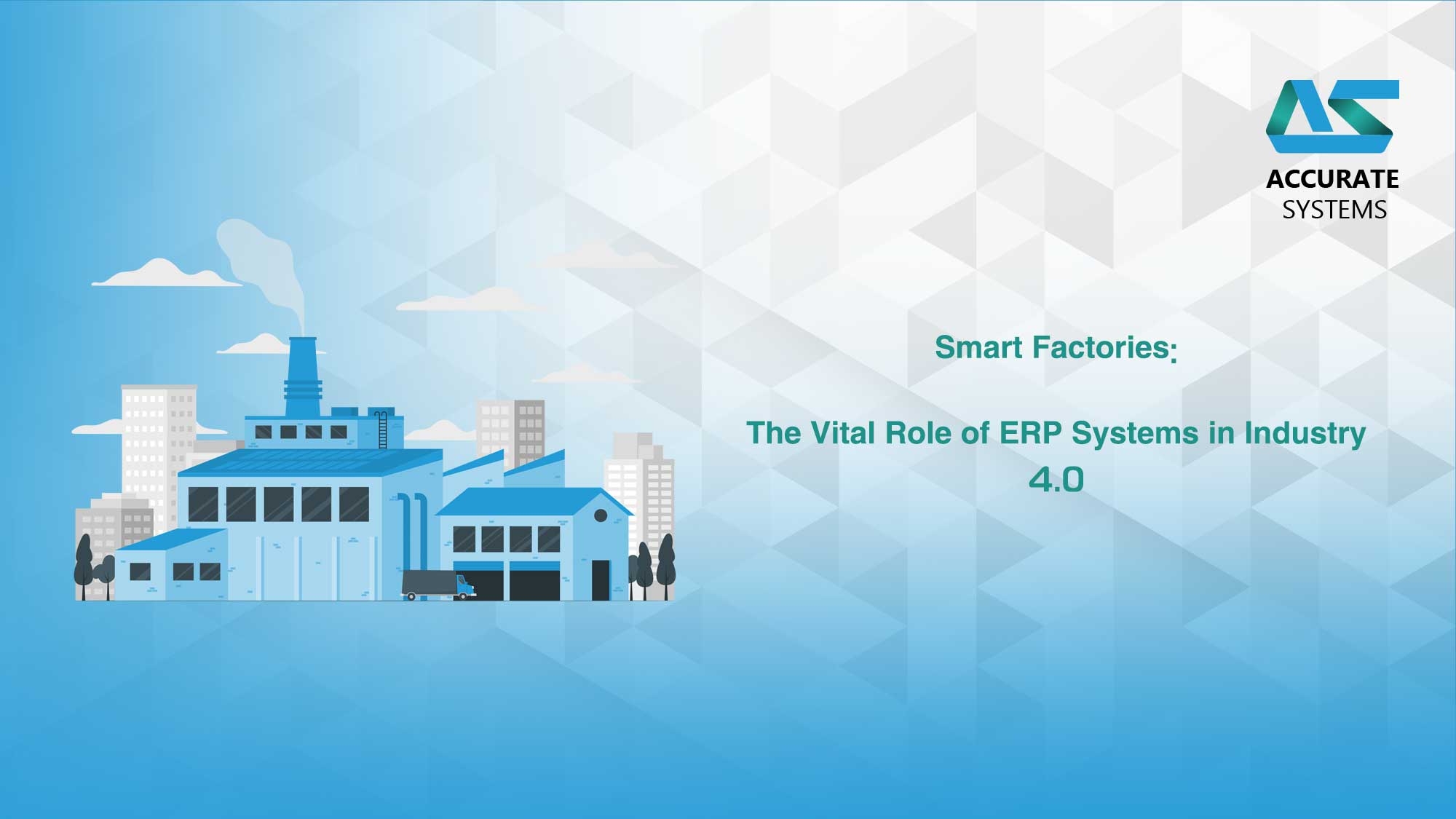Introduction to Smart Factories and ERP Systems
In today’s rapidly evolving manufacturing landscape, smart factories, also known as Industry 4.0 factories, are transforming production with advanced technologies like the Internet of Things (IoT), artificial intelligence (AI), and automation. At the heart of this transformation are Enterprise Resource Planning (ERP) systems, which play a crucial role in optimizing production, improving efficiency, and boosting competitiveness. Let’s explore how ERP systems are shaping the future of smart manufacturing.
What Are Smart Factories?
Smart factories represent the cutting-edge of manufacturing technology. They use a combination of advanced tools and systems to create more efficient, adaptive, and intelligent production environments. Key features of smart factories include:
- Interconnected Systems: Machines, equipment, and processes are connected through IoT, forming an interconnected network that communicates and exchanges data in real-time.
- Advanced Automation: Automation technologies and robotic systems take over repetitive tasks, minimizing the need for human intervention and reducing errors.
- Data Analytics for Optimization: Data from sensors and machines is analyzed in real-time to optimize production processes, pinpoint bottlenecks, and support decision-making.
- Flexibility and Adaptability: Smart factories are built for flexibility, allowing manufacturers to quickly adapt to changing market demands and product variations.
The Role of ERP Systems in Smart Factories
ERP systems are the backbone of the smart factory environment. They serve as the central hub for managing and integrating all manufacturing operations. Here are the key ways ERP systems support smart factories:
1. Data Integration for Better Insights
ERP systems collect and integrate data from IoT devices, sensors, and production machinery. This integration creates a comprehensive view of the entire manufacturing process, enhancing transparency and decision-making.
2. Optimized Production Planning and Scheduling
Real-time data provided by ERP systems enables better production planning and scheduling. This optimization ensures the efficient allocation of resources, reduces downtime, and keeps production on track.
3. Efficient Inventory Management
ERP systems play a vital role in inventory management. They help track inventory levels, manage stockrooms, and automate procurement, reducing costs and minimizing stockouts.
4. Quality Control Integration
By integrating with quality control systems, ERP solutions help monitor product quality, identify defects, and implement corrective measures, ensuring a high level of product quality at every stage.
5. Maintenance Management for Reduced Downtime
Smart factories need well-maintained machinery to stay efficient. ERP systems can schedule preventive maintenance, track equipment performance, and optimize maintenance costs, helping minimize unplanned downtimes.
6. Integration with AI and Robotics
ERP systems can integrate with AI, machine learning, and robotics to further enhance smart factory capabilities. This integration creates opportunities for predictive maintenance, improved production efficiency, and data-driven insights.
Benefits of Using ERP Systems in Smart Factories
Integrating ERP systems in Industry 4.0 smart factories offers numerous advantages:
- Increased Operational Efficiency: ERP systems optimize production processes, reduce downtime, and enhance overall operational efficiency.
- Improved Product Quality: Real-time data collection and analysis allow for better quality control, ensuring consistent product quality.
- Cost Reduction: By automating inventory management, production planning, and maintenance, ERP systems help significantly reduce operational costs.
- Enhanced Flexibility: ERP systems provide the ability to adapt quickly to changes in market demand and product requirements, giving manufacturers a competitive edge.
- Informed Decision-Making: ERP systems offer data-driven insights that facilitate strategic decision-making and enable rapid responses to changes.
Challenges in Implementing ERP Systems in Smart Factories
While the benefits are clear, implementing ERP systems in smart factories is not without its challenges. Here are some of the main considerations:
1. Complexity of Integration
Integrating ERP systems with existing technologies and machinery can be complex. It requires careful planning to ensure a seamless transition, making implementation time-consuming.
2. Data Security Concerns
ERP systems store sensitive business data, making data security a top priority. Strong cybersecurity measures must be put in place to protect against potential threats.
3. High Initial Investment
The initial cost of implementing an ERP system can be significant. However, the long-term benefits in terms of efficiency, cost reduction, and quality improvements often outweigh these initial expenses.
4. Customization Requirements
Many businesses require customized ERP solutions to fit their unique needs, which can increase the complexity and cost of implementation. Customization ensures that the ERP aligns with specific processes and business models.
Conclusion: The Future of Smart Factories with ERP Systems
ERP systems are integral to the success of smart factories, enabling manufacturers to improve efficiency, maintain quality, and adapt to changing conditions. Despite challenges such as integration complexity, data security, and high initial costs, the advantages—such as better efficiency, cost reduction, and informed decision-making—make ERP systems essential for any company aiming to compete in the Industry 4.0 era.
By embracing the capabilities of ERP systems, manufacturers can not only overcome existing challenges but also pave the way for a more efficient, innovative, and competitive future in smart manufacturing.


